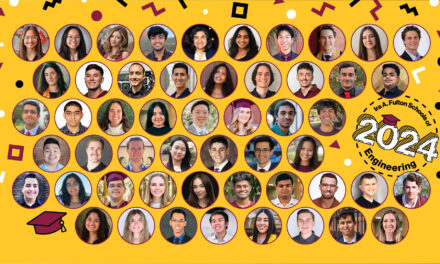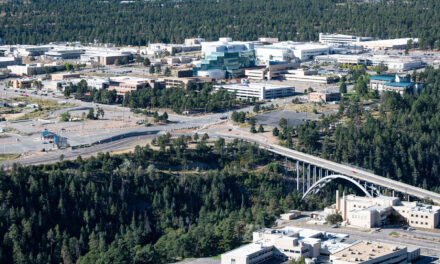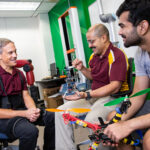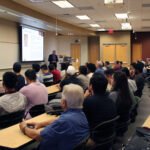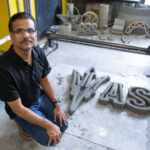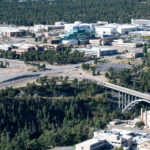
Promising biomedical research earns Wu prestigious fellowship
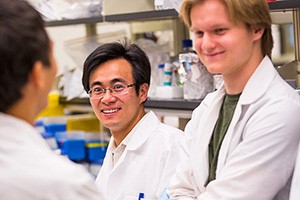
ASU graduate student Fuqing Wu (left) has received a predoctoral fellowship from the American Heart Association for his work in developing a process to study changes in stem cells used as a therapy for heart attack patients. Photographer: Jessica Hochreiter/ASU
Arizona State University graduate student Fuqing Wu has received a predoctoral fellowship from the American Heart Association.
The two-year award will support Wu’s research in the lab of Xiao Wang, assistant professor of biomedical engineering. The funded research aims to use synthetic biological approaches to engineer gene networks regulating stem cell differentiation, which could eventually help promote regenerative therapies for damaged heart muscle.
During a heart attack, the heart loses significant numbers of cardiac muscle cells that the body is unable to replace on its own. Synthetic biology researchers are developing a promising technique of introducing stem cells into the affected area that would change or differentiate into the needed muscle cells. Wu says that while the technique has potential, successful stem cell therapies require accurate and quantitative understanding of the cell differentiation process.
Cell differentiation is a common biological process in which a cell changes from one type to another, but researchers are still attempting to understand the process. Wu’s research is developing a gene network that can regulate and control this differentiation process. The network also gives Wu the ability to test variables and modulate the system in the living cells of Escherichia coli. The platform allows Wu to develop mathematical modeling to better understand the fundamental mechanisms of the cell differentiation.
The results of the work will be a new way to quantitatively and experimentally probe the conditions of the cell differentiations in the system. Practical application will help future researchers better understand the process and, ultimately, better target therapeutic interventions.
“It is a prestigious award and I am very excited about it,” Wu said. “I have been working on this project for two years, and I am finally getting results to demonstrate this idea works. This award gives me more confidence to continue the project and prepare for my future career.”
Wu earned his master’s degree from the Wuhan Institute of Virology, Chinese Academy of Sciences in Wuhan, China. He came to ASU — and Wang’s lab — in 2012 because of its reputation for interdisciplinary work, including in the emerging field of synthetic biology.
He is working toward operating his own lab in the future and is expected to graduate with a with a doctoral degree in 2017. His degree program is in the School of Biological and Health Systems, one of ASU’s Ira A. Fulton Schools of Engineering.
By Gary Campbell





